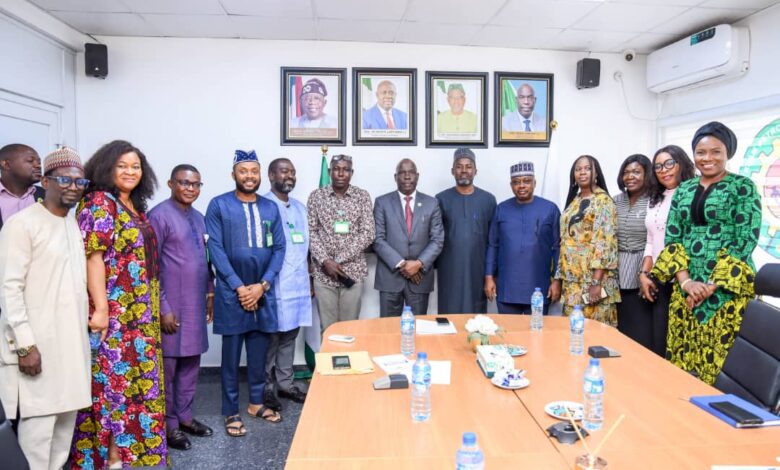Oil Theft: Our Collaboration With Security Agencies Yielding Results -NUPRC Boss
By Sunday Etuka, Abuja

The Commission Chief Executive, Nigerian Upstream Petroleum Regulatory Commission (NUPRC), Engr. Gbenga Komolafe has attributed the rise in crude oil production to the strategic collaboration with security agencies and other relevant entities of government to curb the menace of oil theft, which had almost crippled the sector.
Engr. Komolafe stated this on Thursday when he received a delegation from the Human and Environmental Development Agenda (HEDA) Resource Center and Social Action at the NUPRC Headquarters in Abuja.
He said: “We have been working with security agencies and other relevant entities of government to curb the menace of oil theft, which had almost crippled the sector. This effort is already yielding results as we have witnessed increased production”.

Currently, the nation’s crude oil production is hovering around 1.4mbpd without condensate, and 1.6mbpd with condensate.
Komolafe said, the Commission has also developed regulations around proper and efficient accounting of crude oil production and advanced cargo declaration, noting that these were done to forestall leakages in revenues accrued to the government.
He disclosed that since assumption of office, the Commission has gazetted twelve (12) Regulations in line with the provisions of the Petroleum Industry Act (PIA) 2021, with thirteen (13) others currently at different stages of being gazetted.
The NUPRC boss affirmed that the commitment to the Conference of the Parties (COP) Agreement on achieving net zero emission by the year 2060 has placed on the nation the challenge of getting appropriate funding for the development of hydrocarbon resources.
Nevertheless, he said, the Federal Government has declared gas as our transition fuel and the Commission has so far made successful moves at converting flared gas into commercial gains.
Adding: “Recently we offered 49 flare sites to preferred winners to monetise the flared gas and eliminate gas flaring.
“Also in pursuit of its investment promotion and value creation in the industry, the Commission has pursued the Nigerian Gas Flare Commercialisation Programme (NGFCP) accounting for the monetisation of approximately 50% of gas currently being flared towards achieving Net Zero target.
“It has already achieved 60% Fugitive methane emission reduction target from Oil and Gas for the first time based on robust data provided by the NUPRC and has engaged the International Finance Corporation regarding opportunities surrounding Carbon Capture Utilization and Storage CCUS”, he said.
In the area of Energy Transition, the CCE said, the Commission has established an Energy Transition and Carbon Monetisation unit, formulated the Regulatory Framework for Energy Transition, Decarbonisation and Carbon Monetisation in Nigeria’s Upstream Petroleum Sector, and commenced the process for enabling Carbon Credits Earnings through a defined framework for key climate action initiatives and related activities.
He informed that in line with the PIA on Host Community Development, 124 Host Community Development Trusts (HCDT) have been incorporated.
He said, the Commission with an Original Equipment Manufacturer (OEM) developed a digital portal, HostComply, to create an online platform to ease regulatory compliance and oversight functions for the Regulator and enable the Settlors to meet Regulatory requirements in a timely, efficient, cost-effective manner as spelt out in the PIA.
Speaking on the recent divestments by International Oil Companies (IOCs), which has raised concerns among stakeholders, he said, the Commission has put stringent regulatory frameworks and guidelines subjected to thorough scrutiny and approval by the Commission to govern the divestment process with a keen focus on transparency, accountability and adherence to global best practices.
“We have established mechanisms to monitor and evaluate the performance of divested assets, pre and post-transactions. This includes regular audit inspections and reviews to ensure that operators meet their obligations and that the divested assets are managed efficiently and responsibly”, he said.






